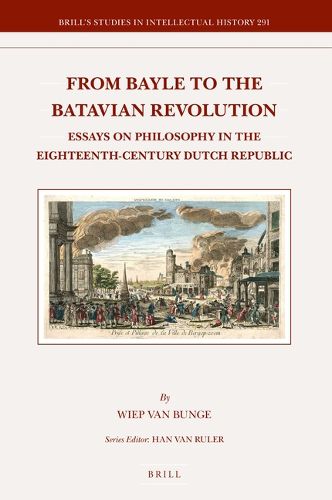Readings Newsletter
Become a Readings Member to make your shopping experience even easier.
Sign in or sign up for free!
You’re not far away from qualifying for FREE standard shipping within Australia
You’ve qualified for FREE standard shipping within Australia
The cart is loading…






This book is an attempt to assess the part played by philosophy in the eighteenth-century Dutch Enlightenment. Following Bayle’s death and the demise of the radical Enlightenment, Dutch philosophers soon embraced Newtonianism and by the second half of the century Wolffianism also started to spread among Dutch academics. Once the Republic started to crumble, Dutch enlightened discourse took a political turn, but with the exception of Frans Hemsterhuis, who chose to ignore the political crisis, it failed to produce original philosophers. By the end of the century, the majority of Dutch philosophers typically refused to embrace Kant’s transcendental project as well as his cosmopolitanism. Instead, early nineteenth-century Dutch professors of philosophy preferred to cultivate their joint admiration for the Ancients.
$9.00 standard shipping within Australia
FREE standard shipping within Australia for orders over $100.00
Express & International shipping calculated at checkout
This book is an attempt to assess the part played by philosophy in the eighteenth-century Dutch Enlightenment. Following Bayle’s death and the demise of the radical Enlightenment, Dutch philosophers soon embraced Newtonianism and by the second half of the century Wolffianism also started to spread among Dutch academics. Once the Republic started to crumble, Dutch enlightened discourse took a political turn, but with the exception of Frans Hemsterhuis, who chose to ignore the political crisis, it failed to produce original philosophers. By the end of the century, the majority of Dutch philosophers typically refused to embrace Kant’s transcendental project as well as his cosmopolitanism. Instead, early nineteenth-century Dutch professors of philosophy preferred to cultivate their joint admiration for the Ancients.